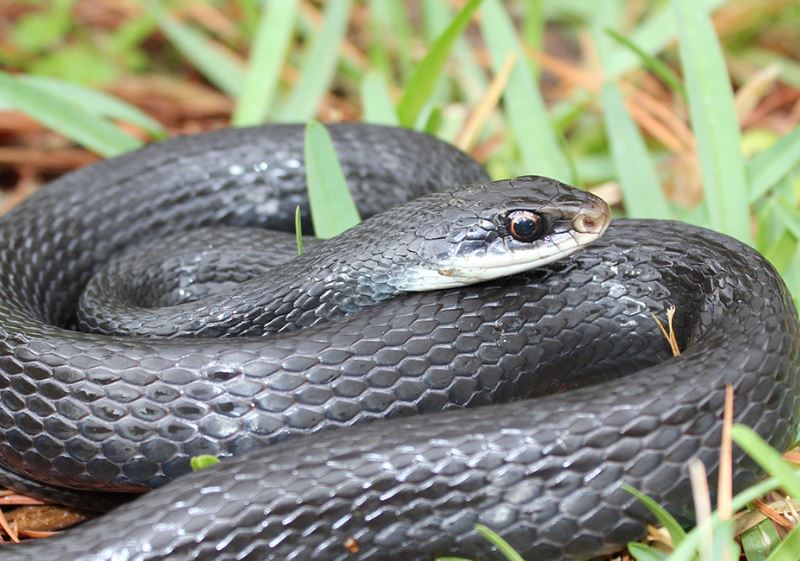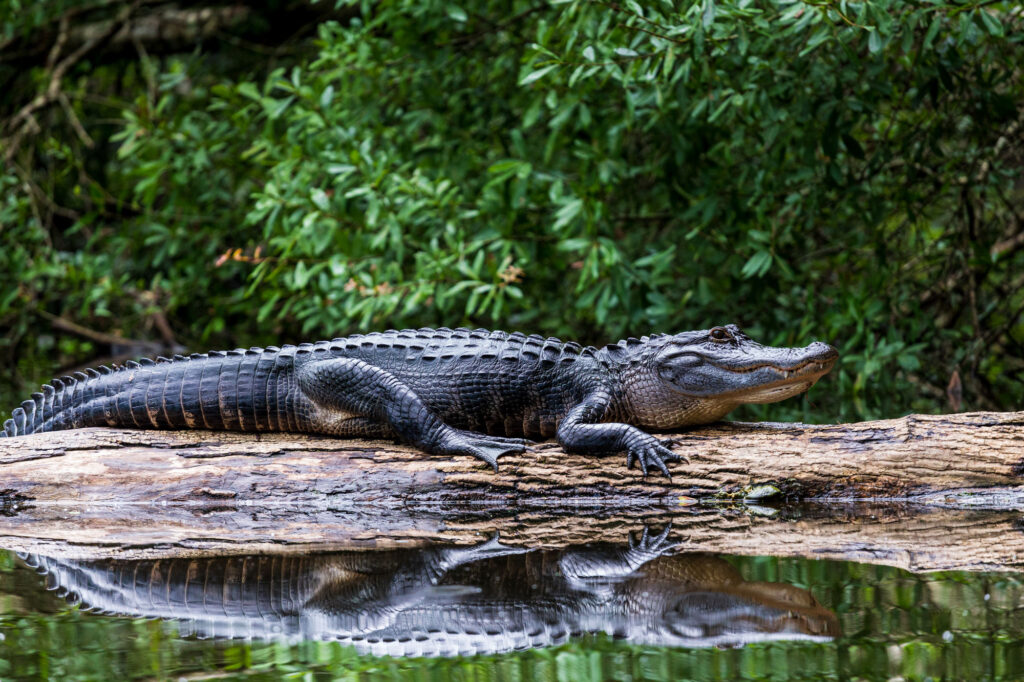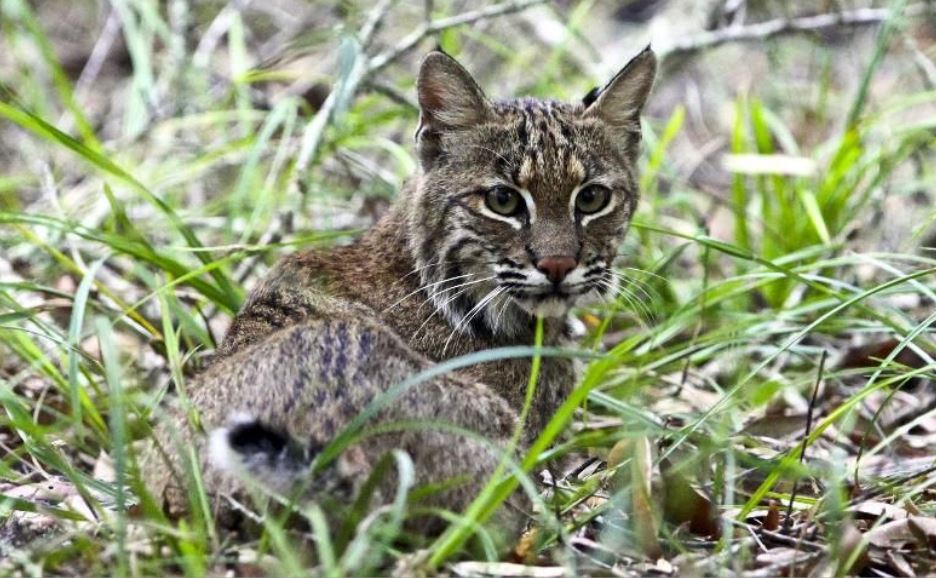Wildlife Safety Here At Hunters Green
Hunter’s Green is a community blessed with diverse wildlife. From majestic birds to elusive bobcats to common alligators, residents are privileged to share their space with Florida’s native species. However, with this privilege comes the responsibility of ensuring both human and animal safety. Here are some guidelines on the importance of wildlife safety and practical tips for homeowners. By following these tips and guidelines, residents of Hunter’s Green can enjoy the beauty of Florida’s wildlife while ensuring the safety and harmony of their community. Remember, responsible coexistence with wildlife not only protects you and your family but also preserves the natural heritage of Florida for future generations.
Wildlife safety is crucial for several reasons:
- Protection of Residents and Pets: Ensuring that wildlife and humans coexist safely helps protect residents and their pets from potential harm.
- Preservation of Wildlife: Responsible interaction with wildlife helps protect native species from becoming endangered or extinct.
- Ecosystem Balance: Wildlife plays a significant role in maintaining the balance of the ecosystem. Predators control the population of smaller animals, while herbivores help manage plant growth.
- Legal Compliance: Adhering to wildlife safety guidelines helps comply with state laws protecting certain species.
Wildlife safety in Florida is primarily managed by the Florida Fish and Wildlife Conservation Commission (FWC). The FWC is responsible for ensuring the well-being of both wildlife and residents by implementing and enforcing regulations that promote safe coexistence with Florida’s diverse animal species. Some key roles and responsibilities of the FWC are:
- Regulation and Enforcement
- Wildlife Management
- Public Safety and Nuisance Wildlife Control
- Education and Outreach
- Conservation Initiatives
In addition to the FWC, other organizations such as the U.S. Fish and Wildlife Service, local animal control agencies, and non-profit conservation groups also play roles in wildlife management and safety in Florida. For more information about wildlife safety and the FWC’s programs, residents can visit the FWC’s official website at myfwc.com or contact their local FWC office.
For both homeowners and vacationers, it is important to be aware of and safely coexist with Florida’s native wildlife. By taking a few simple actions, people can significantly reduce the chances of having negative encounters with wildlife and help in the long-term conservation of the state’s native species.
Protect your pets:
-
- Keep pets inside, secured on short, non-retractable leashes, or attended even in fenced yards. Free-ranging pets can both harm wildlife and be harmed themselves by wildlife.
-
- Do not let pets swim in open bodies of fresh water. You can prevent interactions between pets and aquatic wildlife, like alligators, snakes, and otters by walking pets in areas away from the water’s edge.
-
- If you feed your pets outside, remain present while pets are eating and clean up food and bowls when your pet is finished.
-
- If your pet is bitten or injured by a wild animal, contact your veterinarian for follow-up care.
Protect your property:
-
- Do not store food or scented items in vehicles, screened enclosures, carports or unsecured structures. Wildlife may attempt to access any unsecured food or scented items.
-
- When grilling outdoors, do not leave grills unattended. Be sure to clean grills thoroughly afterward and store them in a sturdy shed or garage if possible.
-
- When leaving or returning to your seasonal residence:
-
- Inspect potential entry points into the home or building. If wildlife is found during your inspection, consult an FWC Wildlife Assistance Biologist for more guidance.
- When away for an extended period, secure vehicles in garages or cover your vehicle to prevent wildlife from taking up residence, nesting, or potentially damaging the vehicle.
-
- When leaving or returning to your seasonal residence:
Protect wildlife:
-
- Give wildlife space – view wild animals through binoculars or from an adequate distance so they don’t feel threatened.
-
- Never intentionally or unintentionally feed wildlife. Feeding wild animals can reduce their natural fear of humans which may result in aggression. This can lead to the need for the animal to be removed or humanely killed in order to protect public safety. Please note that it is illegal to feed several species of wildlife in Florida.
- Let the professionals care for sick, injured and orphaned wildlife. A list of licensed Florida wildlife rehabilitators can be found here (click here).
Alligators are a common sight in Florida, inhabiting freshwater environments such as ponds, marshes, wetlands, and rivers. Here are some important points and tips from the Florida Wildlife Conservation (FWC) about living with alligators:
- Behavior and Ecology:
- Alligators are an essential part of Florida’s natural ecosystems, helping to control the populations of prey species and create habitats for other wildlife.
- They are most active during the warmer months, typically from March to November, and are especially visible during mating season in the spring.
- Alligators can be found in virtually any body of fresh water in Florida, and occasionally in brackish water.
- Potential Risks:
- While alligator attacks on humans are rare, they can be dangerous and even fatal. The risk of an alligator attack can be minimized by following safety guidelines.
- Alligators may pose a threat to pets and small children, who should be kept away from water’s edge in areas known to be inhabited by alligators.
- Preventative Measures:
- Never feed alligators. Feeding them can make them associate humans with food, increasing the risk of aggressive behavior.
- Keep a safe distance from alligators. The FWC recommends staying at least 60 feet away from alligators in the wild.
- Do not swim or let pets swim in areas known to have alligators, especially at dusk and dawn when they are most active.
- Be cautious around water, particularly when fishing, as alligators are attracted to splashing and the presence of fish.
- If You Encounter an Alligator:
- Remain calm and back away slowly. Do not run in a zigzag pattern; just move directly away from the alligator.
- If an alligator hisses or lunges at you, it is a warning sign. Leave the area immediately.
- For safety, always assume alligators are present in freshwater environments.
- Management and Control:
- The FWC manages alligator populations through regulated hunting seasons and nuisance alligator programs.
- If you encounter an alligator that poses a threat to people, pets, or property, contact the FWC’s Nuisance Alligator Hotline at 1-866-FWC-GATOR (1-866-392-4286). Trappers will be dispatched to handle the situation.
- The FWC offers educational resources and programs to help residents understand and safely coexist with alligators.
Living in Florida means sharing the environment with alligators. By respecting their space and following these safety tips, residents can minimize negative interactions and appreciate these fascinating reptiles from a safe distance. For more detailed information and guidelines, residents can visit the FWC’s official website or contact their local FWC office (click here).
Bobcats are native to Florida and can be found in a variety of habitats, including forests, swamps, and suburban areas. Here are some important points and tips from the Florida Wildlife Conservation (FWC) about living with bobcats:
- Behavior and Ecology:
- Bobcats are medium-sized wild cats with a reddish-brown coat, black spots, and tufted ears. They are known for their elusive nature and solitary habits.
- They are primarily nocturnal but can also be active during the day, especially at dawn and dusk.
- Bobcats play a crucial role in the ecosystem by controlling the populations of small mammals, birds, and insects.
- Potential Risks:
- Bobcats are generally not a threat to humans. They are shy and avoid human contact.
- However, they can pose a risk to small pets and livestock. Cats, small dogs, poultry, and rabbits are especially vulnerable.
- Preventative Measures:
- Do not feed bobcats. Feeding them can reduce their natural fear of humans and potentially lead to aggressive behavior.
- Keep pets indoors or supervise them when outside, particularly at dawn and dusk when bobcats are most active.
- Secure livestock in sturdy enclosures, especially at night, to protect them from bobcats and other predators.
- Remove attractants such as pet food, bird feeders, and unsecured garbage that can draw bobcats into residential areas.
- Use fencing and other deterrents to keep bobcats away from yards and gardens.
- If You Encounter a Bobcat:
- Do not approach or corner the bobcat. Give it space to escape.
- Make yourself appear larger by standing tall and waving your arms. Make loud noises to scare the bobcat away.
- If the bobcat does not leave, slowly back away and maintain eye contact without turning your back on the animal.
- Report unusual behavior, such as a bobcat that appears sick or is not afraid of humans, to local wildlife authorities.
- Management and Control:
- The FWC does not generally remove bobcats from the wild unless they pose a direct threat to human safety. Bobcats are a protected species in Florida.
- If you have ongoing issues with bobcats, consider working with a professional wildlife removal service to implement long-term deterrents and solutions.
- Educate neighbors and community members about bobcats and how to coexist with them safely.
Living in Florida means sharing the environment with wildlife, including bobcats. By respecting their space and following these safety tips, residents can minimize negative interactions and appreciate these elusive and beautiful animals from a safe distance. For more detailed information and guidelines, residents can visit the FWC’s official website or contact their local FWC office (click here).
Wild boar, also known as feral hogs, are common in Florida and can be found in a variety of habitats, including forests, swamps, and agricultural areas. Here are some key points and tips from the Florida Wildlife Conservation (FWC) about living with wild boar:
- Behavior and Ecology:
- Wild boar are omnivores and can cause significant damage to native ecosystems, agricultural crops, and residential landscaping.
- They are known for rooting and wallowing, which can disrupt soil and vegetation.
- Wild boar are typically active during early morning and late evening hours.
- Potential Risks:
- Wild boar can be aggressive, especially if they feel threatened or are protecting their young.
- They can carry diseases that are transmissible to livestock, pets, and humans, such as brucellosis and pseudorabies.
- Preventative Measures:
- Secure trash cans and remove food sources to discourage wild boar from entering residential areas.
- Install sturdy fencing around gardens and crops to prevent damage from rooting and foraging.
- Use motion-activated lights or noise devices to deter wild boar from your property.
- If You Encounter a Wild Boar:
- Do not approach or attempt to feed wild boar.
- Keep a safe distance and avoid sudden movements that might provoke an attack.
- If a wild boar approaches, make yourself appear larger by raising your arms and making loud noises to scare it away.
- Management and Control:
- The FWC allows landowners to take wild boar year-round using humane methods such as trapping and hunting, following all state regulations.
- Consider working with professional wildlife removal services if you have a persistent problem with wild boar on your property.
- Report aggressive or unusually large groups of wild boar to local wildlife authorities for further assistance.
Living alongside wild boar in Florida requires awareness and proactive measures to minimize negative interactions and protect both people and property. For more detailed information and guidelines, residents can visit the FWC’s official website or contact their local FWC office (click here).
Wild Hog Flyer- FWC (click to download)
Florida is home to a wide variety of snakes, both venomous and non-venomous. Florida has 44 species of snake, with 6 being venomous:
- Eastern coral snake
- Southern copperhead
- Cottonmouth
- Eastern diamondback rattlesnake
- Timber rattlesnake
- Dusky pygmy rattlesnake.
Most Florida snakes are harmless and beneficial to the environment, as they help remove extra rodent populations, but you should still exercise caution and try not to provoke them unless necessary. Knowing the common species can help residents identify and respond appropriately to encounters.
What to do if you see a snake?
If you do encounter a snake, you should stand back and observe it. This will help you better see its markings and characteristics, which can help you identify whether it’s venomous or not. The Humane Society notes 3 steps for dealing with a snake encounter:
- Leave the snake alone
- Identify its species
- Continue to leave it alone so long as it’s not venomous and not inside a house or building
All outdoor encounters with nonvenomous snakes should be resolved by letting the animal go its own way, most likely to never be seen again. If a snake is venomous, however, it should be removed so that no harm comes to residents and pets. This does not mean the snake has to be killed – animal control or the local police can also help remove venomous snakes. Venomous snakes should not be handled or trapped unless done by a professional, including dead or decapitated ones, as venom can still be injected from reflex biting. If you are bitten by a venomous snake, you should seek immediate medical attention.
Additional links:
Identify a Florida Snake Link: https://www.floridamuseum.ufl.edu/florida-snake-id/
Coexisting with Snakes (Human Society): https://www.humanesociety.org/resources/what-do-about-snakes#:~:text=If%20you%20encounter%20a%20venomous,departments%20to%20remove%20the%20snake.
Treating and Preventing Snake Bites
Florida Venomous Snakes (click to download)
If the animal is on the immediate homeowner’s property, they can contact Animal Control at (813) 744-5660. If the animal is on common area or not on homeowner property, they can contact the front office at (813) 991-4818 and ask for Operations.



Additional links and resources:
Florida Wildlife Commission (FWC): https://myfwc.com/
Florida Wildlife Museum: https://www.floridamuseum.ufl.edu/
Hillsborough Animal Control: https://hcfl.gov/locations/animal-control
Florida’s Poison Control Centers- Snakes: https://floridapoisoncontrol.org/poisoning-in-florida/snakes/#:~:text=Calls%20involving%20snakebites%20often%20require,administer%20the%20correct%20anti%2Dvenom.